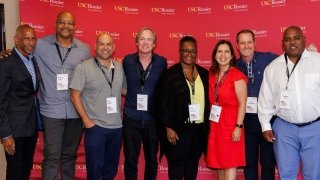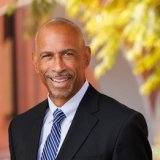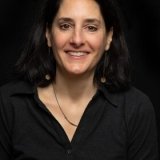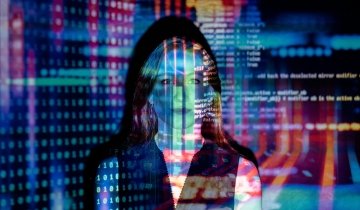What happens when you bring together education leaders to discuss the most pressing issues in their schools? A collaborative, learning experience with actionable results. From June 26 to 29, USC Rossier hosted its inaugural Breakthrough Leadership Institute for school leaders to take a deep-dive into their school communities and to examine common school-wide challenges to move forward.
“We designed the program because we want to support education leaders in their efforts to break through the paralysis that can set in when you're beset by a number of challenges at once,” said USC Rossier Dean Pedro Noguera. “Participants will be able to plan to address the issues that are most pertinent to their schools and districts.”
Over the course of the intensive three-day event, the Breakthrough Leadership Institute focused on interrogating a local problem of practice from a variety of school district compositions. Over 55 participants—district superintendents, principals, instructional leaders, union presidents, school board members and community partners—analyzed case studies, interacted with peers and instructors as well as had the opportunity to network. Among the districts and schools that participated included Los Angeles Unified School District Superintendent (LAUSD), Santa Barbara Unified School District, Culver City Unified School District, Dorsey High School and Dr. Maya Angelou Community High School.
Program content was designed around four interrelated themes: disrupt how a district provides support, innovate ways to personalize teaching, reimagine definitions of how students feel valued, and advocate for clear definitions and actions. Topics ranged from educational equity and communication strategies to organizational change and coherence building within educational systems.
“We wanted to open a dialogue to provoke, stimulate and challenge assumptions,” said Breakthrough Leadership Institute organizer and USC Rossier Professor Darline Robles. “Each group was led by an experienced superintendent and facilitator, who is committed to engaging with each group in the fall and the spring. Our office is also available to provide ongoing support as needed.”
Featured speakers included global thinkers and cutting-edge leaders within education and from various fields. Among them include USC Center for Affective Neuroscience, Development, Learning and Education director Mary Helen Immordino-Yang, USC Marshall School of Business Professor Shon Hiatt and University of Victoria’s School of Education Dean Vanessa Andreotti. USC Rossier speakers included Dean Noguera, who discussed educational equity strategies, and Associate Professor Morgan Polikoff, who discussed his study on teaching controversial topics in the classroom. USC Rossier Professor Julie Marsh spoke and co-led a workshop with Eupha Jeanne Daramola PhD ’22, her former student now with RAND, titled Examining Racial (In)Equity in District Community Engagement Efforts. Featured speakers were former LAUSD superintendent Austin Beutner and current LAUSD superintendent Alberto Carvalho.
When asked how to bring the joy back into the classroom, Superintendent Carvalho said, “It’s not easy.” He suggested creating conditions that create joy and joyful experiences for students and parents. “Number one, embed it seriously into your strategic plan. Secondly, attach experiences, deliverables that have their own metrics that we need to deliver on,” he added. Domains discussed included customer service, student peer-to-peer mentors and employee wellness programs.
The Breakthrough Leadership Institute was an opportunity for school leaders to reflect and consider new approaches that would ultimately improve student learning outcomes. In addition to developing strategies, participants were able to recognize common concerns and attempt to resolve them.
“There’s hope,” said a program participant Martha Chacon, principal at John Adams Middle School within Santa Monica Malibu Unified School District. Principal Chacon is also a USC Rossier Doctor of Education in Educational Leadership candidate. “These are not problems that are new to anybody or any school district, but there are proven practices that really help to shift the tide.”








